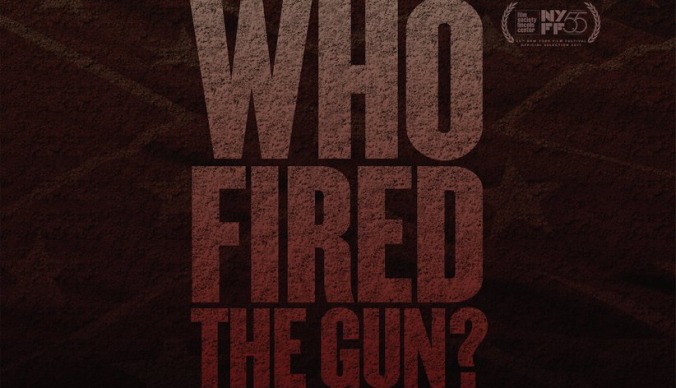The frustrating Did You Wonder Who Fired The Gun? ponders racism and erasure by way of true crime

Ed Vaughn, a civil rights activist in his 80s, laughs as he remembers the first time he ate at a newly desegregated five-and-dime in Dothan, Alabama. He had fought for years for the right to be served at the whites-only lunch counter, but it turned out the food there was slop—nowhere as good as home cooking, anyway. As he speaks, the documentarian Travis Wilkerson frames close-ups of the cluttered living room in a silent chronology: school pictures; election and reelection posters from Vaughn’s years in Michigan, where he was a state rep; paintings of black superheroes and cowboys; a large framed photo of Stokely Carmichael in cracked glass and a picture of Frederick Douglass. Vaughn is a talker, and his stories are wild—like the one about the white head surgeon at the local hospital who was usually too drunk to operate, leaving the job to a black orderly who’d never made it past the third grade.
It’s sequences of pure portraiture like this that make the circuitous essay-doc Did You Wonder Who Fired The Gun? a frustrating experience. Behind it lies the story of Wilkerson’s great-grandfather, S.E. Branch, who killed a middle-aged black man named Bill Spann in cold blood inside the family grocery store in 1946 with the same .32 revolver that the filmmaker was taught to shoot as a boy. Wilkerson narrates over black-and-white footage in a ponderous voice that sounds like a liberal version of Rorschach, the disturbed right-wing narrator of Alan Moore’s Watchmen. “Harper Lee died this year,” he intones near the beginning. His subject turns from the myths of the South (including its “secular saint,” Atticus Finch) to the erasure of black experience and radicalism. The only evidence that Bill Spann ever existed is a death certificate, while the Branch grocery has undergone only minimal remodeling since the family sold it off. These are compelling ideas.
Wilkerson, known for politically conscientious documentaries like An Injury To One and Distinguished Flying Cross, finds a monster in his great-grandfather. But there is also the matter of the director’s estranged aunt, who turned his mother on to “folk music and civil rights” (Wilkerson’s own lifelong interests), only to become an unabashed white supremacist and secessionist Neo-Confederate. The filmmaker knows that his subjects are eluding him. Almost no one is willing to talk on camera (Vaughn is the only person interviewed at length), and even the smallest scraps of information are hard to come by. But his approach—half art installation, half solemn true-crime podcast, read over shots of trees and empty storefronts—is more aggravating than lucid, withholding information and observations for dramatic effect. For someone so gloomily aware of his own privilege, Wilkerson spends a lot of the film playing dumb and speculating—a writer’s trick for giving shape to a piece with a thesis and no conclusion. He doesn’t have the footage to make Did You Wonder Who Fired The Gun? come together as an investigation narrative, and his insistence on a quasi-chronological structure means that it doesn’t work as an essay, either.